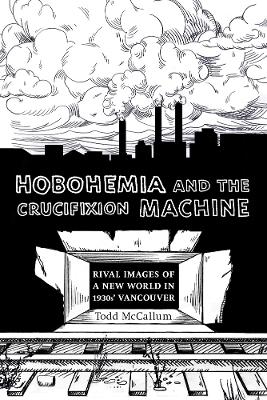Fabriks: Studies in the Working Class
1 total work
In the early years of the Great Depression, thousands of unemployedhomeless transients settled into Vancouver's "hobojungle." The jungle operated as a distinct community, in whichgoods were exchanged and shared directly, without benefit of currency.But as the transients moved from the jungles to the city, they madeinnumerable demands on Vancouver's Relief Department, consumingfinancial resources at a rate that threatened the city with bankruptcy.McCallum argues that, threatened by this "ungovernablesociety," Vancouver's Relief Department employed Fordistmanagement methods that ultimately stripped the transients of theirindividuality. Hobohemia and the Crucifixion Machineexplores the connections between the history of transiency and that ofFordism, offering a new interpretation of the economic and politicalcrises that wracked Canada in the early years of the GreatDepression.
